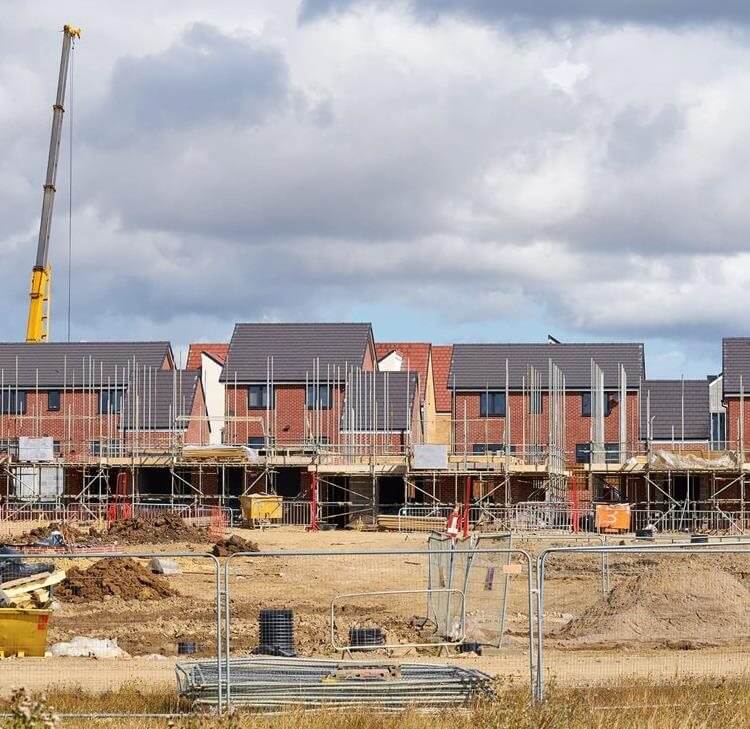Comments from Rebecca Toates, Partner at Browne Jacobson
Housebuilding
We welcome the Labour Party’s ambitious pledge to build 1.5 million homes over the next five years. This commitment to delivering 300,000 homes per year is a significant step towards addressing the housing shortage and ensuring that more people have access to affordable homes. To achieve this, significant reform of the planning system will be required, alleviating delays and ensuring greater collaboration for substantive new developments and less NIMBYism.
Two key questions for us are, firstly, how will the private sector be incentivised to build at a greater rate/speed when the status quo keeps prices high. This may involve more government funding into infrastructure and unlocking problematic sites for example, as well as looking at addressing the skills shortage in the construction industry. Secondly, how will enough genuinely affordable housing be constructed, particularly that for social rent? Will funding be passed down to local authorities and registered providers and will there be a change to right to buy to ensure more affordable housing stays within the system? A further thought is that where developers are required to build more affordable housing than currently required, this will have a further impact on site viability. Will other costs (such as the new BNG requirements, forthcoming building safety levy and s.106/CIL costs) need to be reduced to ensure sites come forward? A new Government will have to consider this wider picture to really ensure housebuilding pace is picked up.
Comments from Robert Wofinden, Partner at Browne Jacobson
Nutrient neutrality
I appreciate Labour’s commitment to addressing the challenges posed by nutrient neutrality while maintaining environmental protections. The pledge to implement solutions that unlock the building of homes affected by nutrient neutrality is a crucial step towards balancing development and environmental sustainability.
However, there are significant concerns that need to be addressed to ensure this policy is both effective and practical:
Development Challenges in Affected Areas - Nutrient neutrality requirements have made it increasingly difficult to develop in certain parts of the country. These regulations, while essential for protecting our waterways, can create substantial barriers for housing projects, particularly in regions already struggling with housing shortages.
Exacerbation by Biodiversity Net Gain (BNG) and Planning Systems - The additional layer of complexity introduced by BNG requirements further complicates the planning process. Developers are facing increased costs and delays, which are compounded by an already challenging planning system. There needs to be a streamlined approach that simplifies these processes without compromising environmental goals.
Need for Compromise - It is essential to find a compromise that allows for the necessary housing development while still protecting our natural environment. This could involve innovative mitigation strategies, such as creating new wetlands or retrofitting sustainable urban drainage systems, to offset nutrient impacts. Additionally, providing clear guidance and support to local planning authorities and developers can help navigate these requirements more efficiently.
Transparent and Collaborative Approach - Implementing solutions to nutrient neutrality must involve all stakeholders, including local communities, environmental groups, and the development sector. A transparent and collaborative approach will ensure that the policy is fair, sustainable, and effective in achieving its goals.
In conclusion, while Labour’s nutrient neutrality policy is a positive step towards sustainable development, its success will depend on addressing the practical challenges it presents. As a property lawyer, I am hopeful that with the right measures in place, we can achieve a balanced approach that supports both housing development and environmental protection.
Use of green belt land
I recognise the importance of Labour’s commitment to preserving the green belt while strategically releasing lower quality ‘grey belt’ land for development. This approach aims to balance the need for new housing with the protection of our valuable green spaces.
However, there are several concerns that need to be addressed to ensure this policy is implemented effectively:
Categorisation of Green Belt Land: The process of categorizing and identifying ‘grey belt’ land must be transparent and based on clear criteria. It is essential to ensure that this categorization does not lead to the unintended release of valuable green spaces that provide ecological, recreational, and aesthetic benefits to our communities.
Impact on Green and Open Spaces: While the focus is on lower quality land, there is a risk that development could encroach on green and open spaces that are vital for public health and well-being. These spaces offer significant environmental and social benefits, and their protection should remain a priority.
Use of Productive Farmland: The potential use of productive farmland for housing development raises concerns about food security and the sustainability of local agriculture. It is crucial to strike a balance between meeting housing needs and preserving agricultural land that contributes to our food supply and rural economy.
Review and Implementation: A comprehensive review of the green belt policy is welcome to help achieve much-needed housing development. However, this review must involve all stakeholders, including local communities, environmental groups, and the agricultural sector, to ensure that the policy is fair, sustainable, and effective.
While Labour’s strategic approach to green belt land offers a pathway to address housing shortages, it is imperative that the implementation of this policy is carefully managed to protect our green spaces and productive farmland.
Farming & agriculture
I commend the Labour Party’s commitment to enhancing the use of land for farming and agriculture. The pledge to ensure that half of all food purchased across the public sector is locally produced or certified to higher environmental standards is a significant step towards supporting local farmers and promoting sustainable practices.
However, there are several practical concerns that need to be addressed to ensure the success of this policy:
Practicalities of Food Production: While the goal of increasing local food production is admirable, the practicalities of achieving this target must be carefully considered. Farmers face numerous challenges, including fluctuating market conditions, extreme weather events, and rising input costs. Ensuring that local farmers have the necessary support and resources to meet these demands is crucial.
Conflict with Sustainable Farming Incentive (SFI) and Environmental Schemes: The introduction of a land-use framework and the continuation of Environmental Land Management (ELM) schemes, such as the Sustainable Farming Incentive (SFI), aim to balance food production with environmental sustainability. However, there is a potential conflict between maximizing food production and meeting environmental targets. It is essential to find a balance that allows farmers to produce food efficiently while also contributing to environmental goals.
Pressures on Farms Regarding Biodiversity Net Gain (BNG): The mandatory BNG requirement, which mandates a minimum of 10% biodiversity net gain on new developments, presents additional pressures on farmers. While BNG can provide a stable income stream, it also requires significant investment in habitat creation and management. Farmers need clear guidance and support to navigate these requirements without compromising their primary role of food production.
While Labour’s agricultural policy is a positive step towards sustainable farming and local food production, its success will depend on addressing these practical challenges.










































